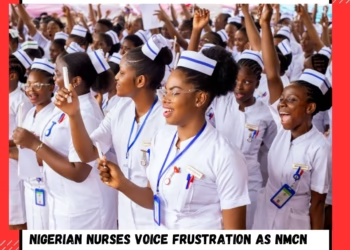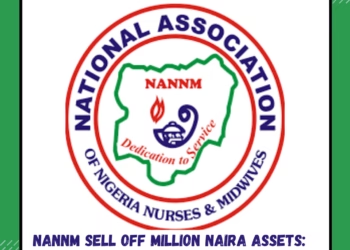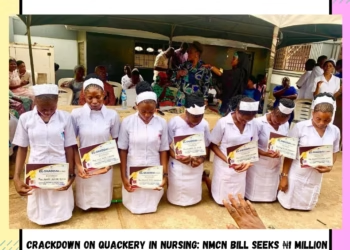GRNMA Threatens Nationwide Strike Amid MPox Crisis Over Unmet Conditions of Service
Fellow Nurses Africa News Desk || Accra, Ghana || May 29, 2025
The Ghana Registered Nurses and Midwives Association (GRNMA) has escalated its dispute with the government, announcing a series of industrial actions that could culminate in a nationwide strike by June 9, 2025. This decision, revealed during an emergency press conference at the GRNMA National Secretariat at 1:00 PM today, threatens to shut down nursing and midwifery services across the country at a critical time when Ghana is battling the MPox disease outbreak.
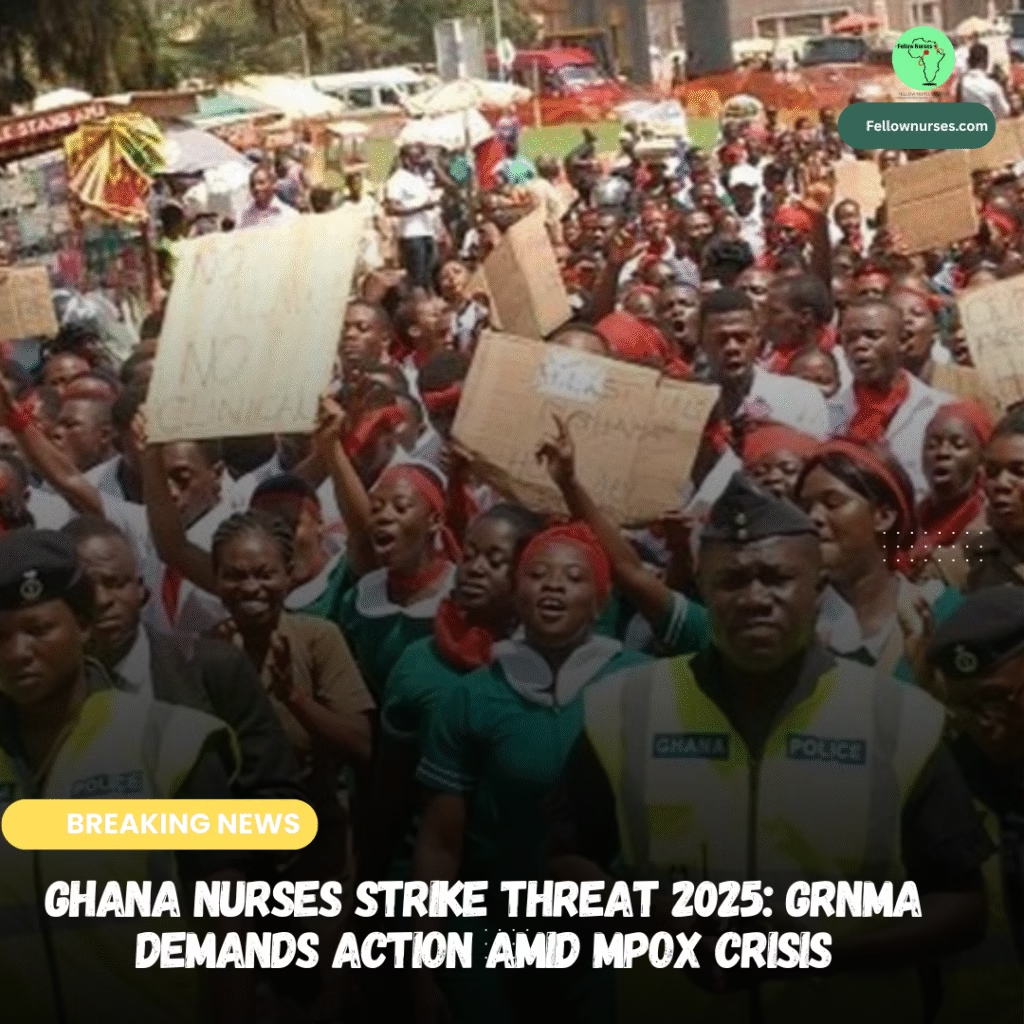
The GRNMA, representing over 128,000 nurses and midwives, cited the government’s failure to implement improved conditions of service agreed upon in 2024 as the primary reason for the planned action. These conditions include unpaid allowances—some dating back nine months for rotational nurses—and delayed postings, which have fueled widespread frustration. The union issued a one-week ultimatum earlier in May 2025, demanding the disbursement of these funds, but the government has yet to act, prompting the GRNMA to take a harder stance.
Ongoing Grievances and Nurse Exodus
The unrest within the GRNMA reflects deeper systemic issues in Ghana’s healthcare sector. Poor working conditions and inadequate remuneration have driven a significant exodus of nurses, with the union reporting that approximately 7,000 nurses left the country between 2022 and 2023, including 4,000 in 2023 alone.
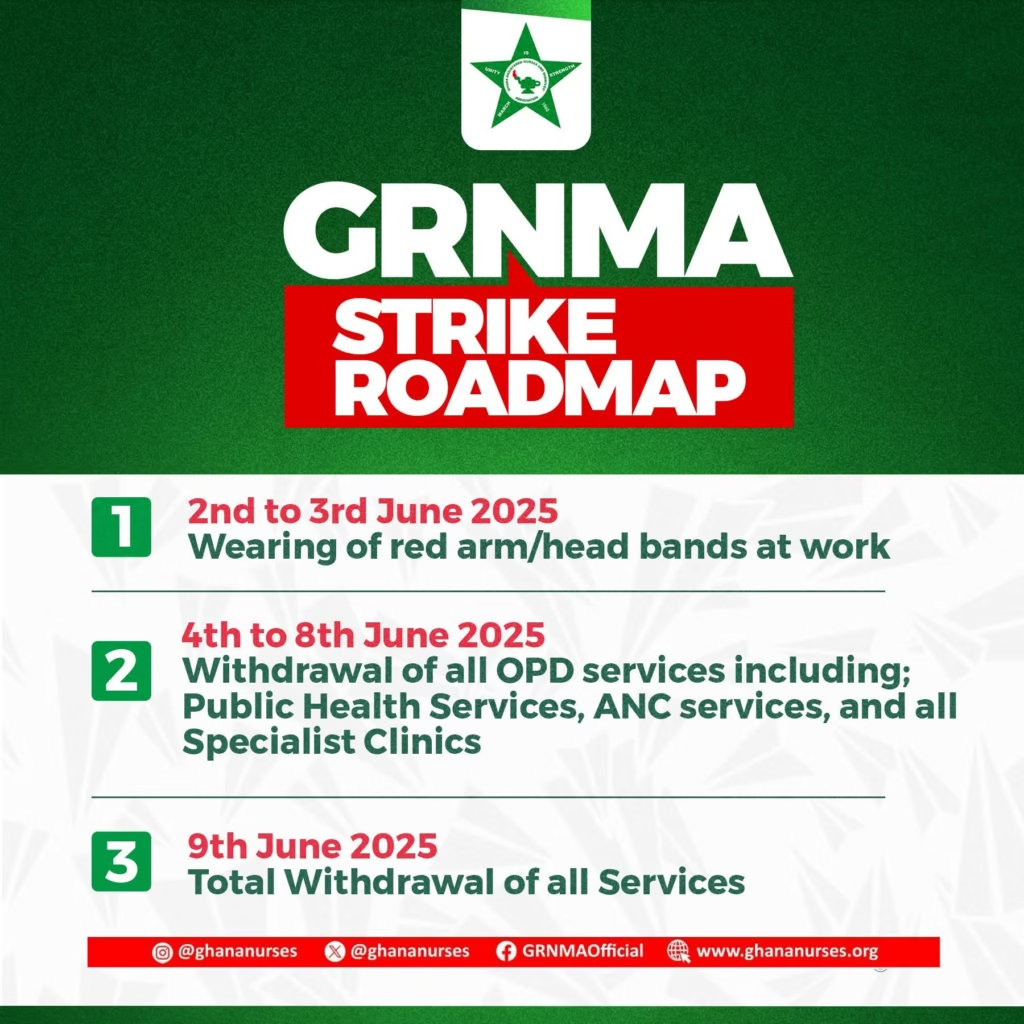
Adding to the tension, nurses have pointed out that allowances included in the 2025 budget remain unpaid, despite prior agreements. This has led to accusations of government neglect, with the GRNMA arguing that budgetary provisions exist but are not being implemented. The timing of the potential strike is particularly alarming, as Ghana grapples with the MPox outbreak, which could exacerbate an already strained healthcare system.
Internal Divisions Within GRNMA
The GRNMA’s push for action is not without internal challenges. There is notable division within the union, particularly regarding leadership and strategy. Some members have expressed dissatisfaction with GRNMA President Perpetual Ofori-Ampofo, accusing her of ineffective leadership and calling for her resignation. Some hold the sentiments like “nurses are suffering because of her leadership,” indicating a rift between the leadership and rank-and-file members.
Additionally, splinter groups like the Concerned Nurses and Midwives Association have emerged, criticizing the GRNMA for failing to address key issues such as unpaid allowances and poor working conditions. There are also differing priorities among members, with some focusing on immediate concerns like unpaid arrears, while others emphasize long-term issues like nurse migration. Regional disparities further complicate the situation, as nurses in rural areas and those in rotational programs feel particularly neglected compared to their urban counterparts with permanent postings.
Government Response and Plea for Dialogue
In response to the GRNMA’s press conference, the Ministry of Health issued a statement urging the union to reconsider its actions “in the interest of the Ghanaian patient.” The Ministry expressed shock at the timing of the industrial action, noting that Health Minister Kwabena Mintah Akandoh has met with the GRNMA five times since taking office in 2025. It also referenced historical improvements under President John Dramani Mahama, who implemented better conditions of service for health workers in 2015.
The Ministry highlighted a 2024 agreement to form a committee comprising representatives from the GRNMA, the Ministry of Finance, and the Ministry of Health to address these issues. However, implementation has been delayed, a point of contention for the union. The Ministry criticized the GRNMA for using patients as leverage, calling for a more amicable resolution to avoid further strain on the healthcare sector, especially amidst the MPox crisis.
A Critical Juncture for Ghana’s Healthcare
The GRNMA’s slogan, “Unity is Strength,” underscores its intent to present a united front, but internal divisions and government delays threaten to undermine this goal. If the strike proceeds as planned, the shutdown of nursing and midwifery services could have severe consequences for Ghana’s healthcare system, particularly for vulnerable patients affected by the MPox outbreak.
As the June 9 deadline approaches, all eyes are on the government and the GRNMA to see if dialogue can avert a crisis. For now, the fate of Ghana’s healthcare sector hangs in the balance, with nurses demanding action and the government pleading for patience.
Join the largest African nursing community: Are you a nurse or aspiring healthcare professional across Africa? Connect with Africa’s largest nursing community to share knowledge, network, and grow: Join here.
Fellow Nurses Africa is the independent voice of African nursing. We educate, inform, and support the nursing profession.



